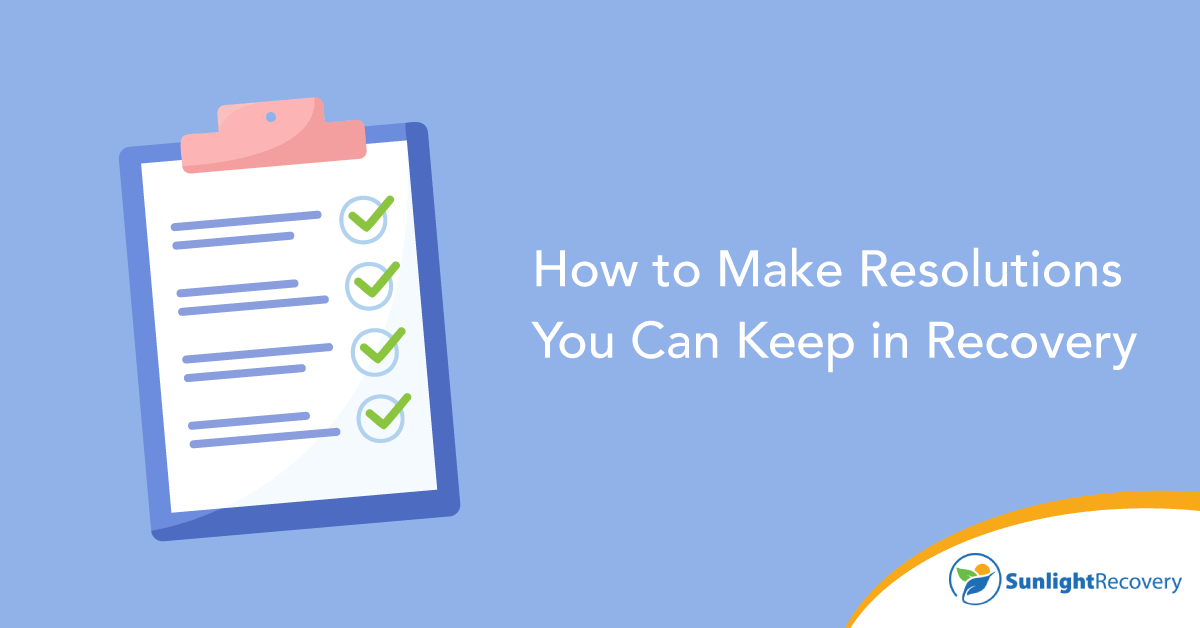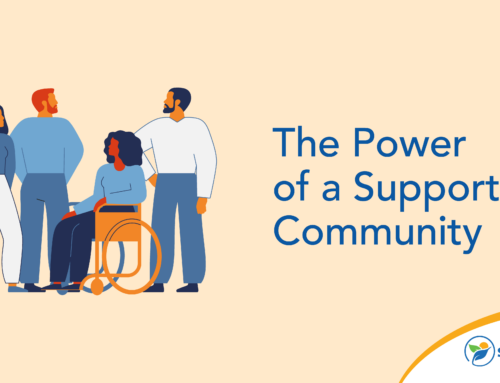When you’re in recovery, setting achievable sobriety goals for the coming year can be as important as not drinking or using. But as fun as it is to write down resolutions to welcome the new year, these self-imposed promises are notoriously hard to keep. Research has shown that nearly half of Americans give up on their resolutions before February, and only 9% see them through to fruition. However, staying committed to a few meaningful goals can boost your well-being.
Set Realistic, Achievable Sobriety Goals
Humans are creatures of habit, and it’s hard to make meaningful changes after spending years stuck in unhealthy patterns. When writing down your resolutions this year, try to be mindful of how difficult change is. Instead of aiming for vague goals outside your control or a complete life overhaul, focus on a few small, achievable ones.
Resolutions work best when they’re realistic and specific, especially in recovery. Instead of perfection, aim for goals that fit your lifestyle. Setting SMART (Specific, Measurable, Achievable and Time-bound) goals can be a helpful strategy for making resolutions you can keep.
- Specific. Be as clear as possible when you define a goal. Instead of aiming for something vague like “being healthier,” specify how many gym sessions you want to do each week.
- Measurable. Establish how you’ll track progress. For instance, if your goal is to read more, aim to read one book per month.
- Achievable. Make sure a goal is realistic, given your resources and time. If you’re new to exercising and work full-time, aiming for daily workouts might be too much. Start with two or three times a week.
- Relevant. Align goals with what truly matters to you and can support your recovery. Setting a goal to practice mindful meditation for 5 minutes a day could help combat stress.
- Time-bound. Set a timeline for achieving a goal. For example, aiming to save $300 by June adds urgency and helps keep you focused.
The wording also matters when establishing resolutions. One study found that approach-oriented goals (e.g., eating more vegetables) were more successful than avoidance goals (e.g., avoiding junk food).
Make Resolutions That Support Your Mental and Physical Health
Health-related resolutions are among the most popular types. Recovery from an SUD is a commitment to continuously improving your health and emotional well-being. You’ve already come a long way in your recovery, so make resolutions to build on your hard-earned achievements.
Ideas might include committing to a daily walk or joining a new exercise class at your gym. You can download a meditation app and commit to practicing for a few minutes each day. If you want to improve your diet, resolve to try a new healthy recipe each week. There are plenty of free step-by-step recipes and videos available online to help you practice.
If you’ve received treatment from a rehab facility or you’re currently in therapy, you may want to make a resolution about attending follow-up appointments and staying engaged with your providers. If you’re in AA or another peer support group, restate your commitment to attending meetings. Perhaps you could set a goal to help more newcomers stay sober in the coming year.
Long-term recovery requires continuous work and a great deal of self-care. Don’t underestimate the importance of getting adequate sleep and taking time to relax. While the list of potential resolutions may seem endless, you shouldn’t feel pressure to overcommit yourself. Pick a few goals that resonate with your values and dreams for the future.
Stay Accountable With a Support Network
Fear of failure may tempt you to keep your resolutions to yourself, but sharing them with trusted friends and family members could improve your chances of success. Telling people about your goals creates accountability and offers you a source of encouragement when things get tough. You can try scheduling check-ins with a trusted person, preferably someone with similar goals. When you stay connected with your support network, you’ll always have someone on your side to discuss challenges, celebrate victories and help you stay motivated.
Tools such as apps, online trackers or even a simple journal can make it easy to monitor your progress. Some digital tools include options for connecting with others working toward similar goals, adding a sense of community to the process.
Celebrate Small Milestones to Maintain Motivation
Progress is often gradual and difficult to measure from one day to the next. When you look back on your recovery journey, how you felt on the first day may differ from how you feel now. The same applies when setting resolutions. Sober living also means getting in the habit of celebrating small victories.
You’ll have a better chance at maintaining motivation if you take a moment to recognize each win, such as consistently sticking to your exercise routine for 1 month.
Find healthy ways to reward your accomplishments. Rewards don’t need to be elaborate. Simple things, like enjoying a favorite activity, spending time in nature or treating yourself to a new book, can make a difference.
Remember to regularly take time to reflect on how far you’ve come. This will allow you to see the changes you’ve made and feel proud of your achievements. Keeping a journal and occasionally reading your past entries is a great way to keep track of your accomplishments.
Prepare for Setbacks With Resilience Strategies
Anticipating potential challenges isn’t about admitting defeat but about helping you stay on track. Despite your best intentions, stress or unexpected events are likely to happen. Using or drinking may have been your way of coping with perceived failure in the past. Sober goals are about acknowledging and preparing for challenging days.
Consider potential setbacks and how you might tackle them this new year. Instead of engaging in negative self-talk that may derail your progress, commit to being kind to yourself. Stay flexible with your goals. If a resolution feels overwhelming, adjusting it so it’s more manageable is okay.
Lean on Us for Help Keeping Your Resolutions
At Sunlight Recovery, we understand that achieving goals for recovery is about more than going through withdrawal. We can be here every step of the way to celebrate your successes and provide the accountability you need for a successful life. Get in touch now, and let’s make this coming year your best one yet.







